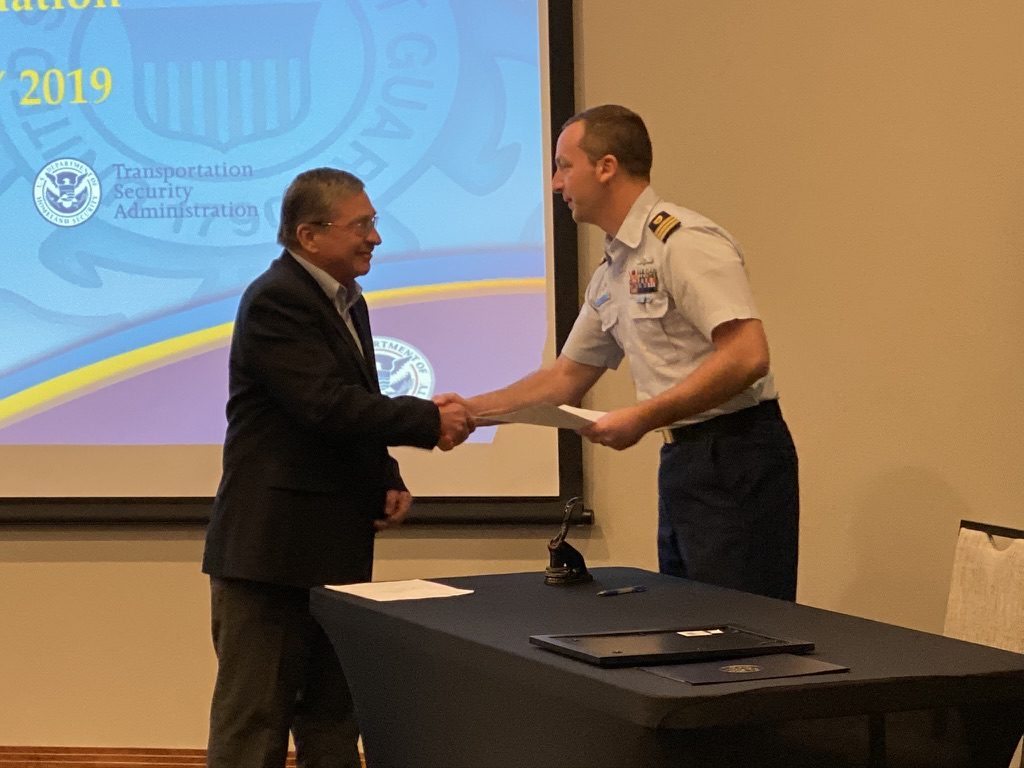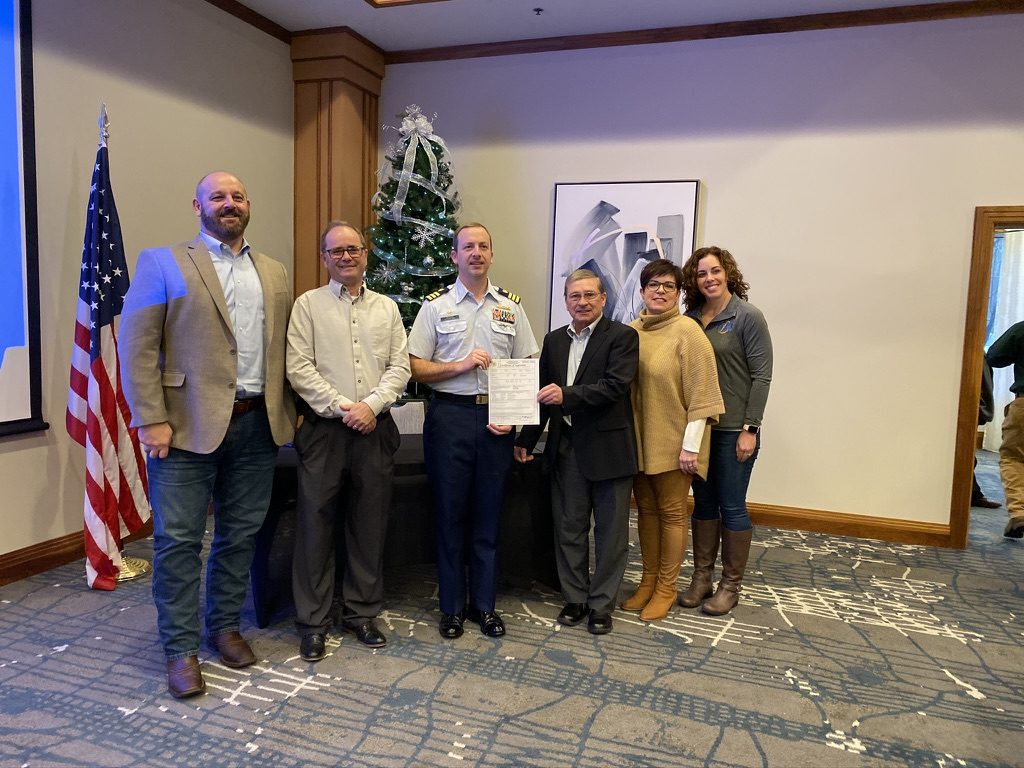Originally posted LT AMY MIDGETT ON DECEMBER 6, 2019 (Coast Guard Sector Upper Mississippi River on the USCGs Maritime Commons Blog 12/06/2019. Click here to view the original post.
The Coast Guard published Marine Safety Alert 12-19 to educate the towing vessel community of the need to maintain clear communication with all parties involved in their Towing Safety Management System (TSMS).
Recently, an investigation of a towing vessel loss of propulsion revealed gaps in the implementation of the vessel’s TSMS that were causal to the incident and a direct result of a poor TSMS-to-TSMS transition during the chartering of the vessel.
The ownership and operational management of a ship can be complicated. The common use of charter relationships among inland towing vessel operators, coupled with a potentially large number of involved parties (Coast Guard, Third Party Organizations (TPO), auditors, surveyors, owners, operators, etc.) and myriad documentation requirements (Certificate of Inspection, TSMS, surveys, audit reports, work lists, maintenance schedules, logs, etc.) makes this especially challenging.
In this case, an inspected towing vessel was chartered (bareboat) to another operator with a different TSMS. During the handoff to the new operator, the vessel was added to the chartering company’s TSMS. However, the handoff did NOT adequately address how to bring a chartered vessel under the new TSMS, the receiving TPO did not adequately survey the vessel, and the receiving operator did not understand the existing deficiencies or pending repairs/maintenance. During subsequent operations by the charterer, the vessel experienced a loss of propulsion due to insufficient fuel in the day tank. Upon inspection, the fuel transfer pump and the tank’s low- level alarm were both found inoperative. Only one of these issues (the low-level alarm) was known prior to the incident and that fact was not communicated during the vessel’s handoff. The investigation also revealed that the crew had no knowledge of the charterer’s TSMS procedures, did not feel empowered to conduct any repairs on the vessel and were generally unfamiliar with the vessel’s configuration and arrangement.
The Coast Guard strongly recommends that parties involved in the chartering of towing vessels complete the following actions prior to offering or accepting a charter arrangement:
- Ensure a vessel is in full compliance with all applicable regulatory requirements;
- Establish clear procedures to transfer a vessel to a different TSMS;
- Confirm that all parties understand their responsibilities for safety, repairs, and maintenance;
- Outline the steps to transfer known Corrective Action Reports, deficiencies, and maintenance needs;
- Ensure planned and unplanned maintenance continues under the charter arrangement;
- Establish processes to provide indoctrination/on-boarding for new crew members; and
- Notify the Coast Guard to ensure proper updates are made to the vessel’s Certificate of Inspection.
In summary, each party in the Subchapter M ecosystem has a responsibility to ensure that the transfer of a vessel in or out of a charter does NOT become a break in safety processes or safety culture.
This safety alert was created by Coast Guard Sector Upper Mississippi River and is provided for informational purposes only and does not relieve any domestic or international safety, operational or material requirement. Questions regarding this safety alert may be sent to the Sector Upper Mississippi River Inspection Division at marine-inspectors@uscg.mil.
Click here to download Marine Safety Alert 12-19


